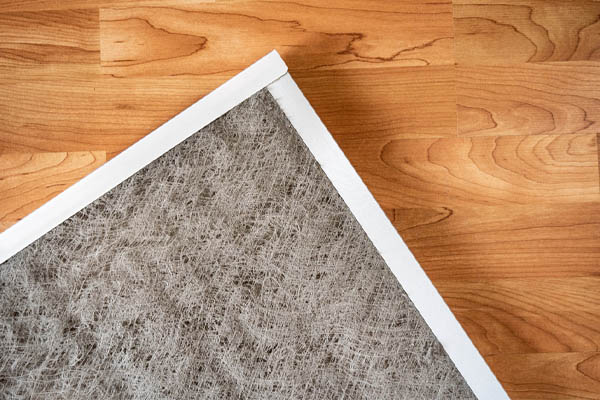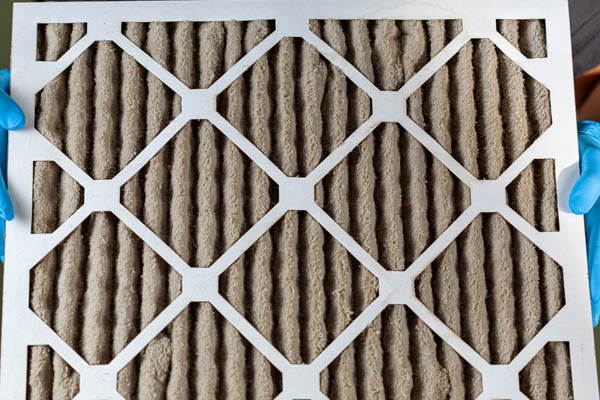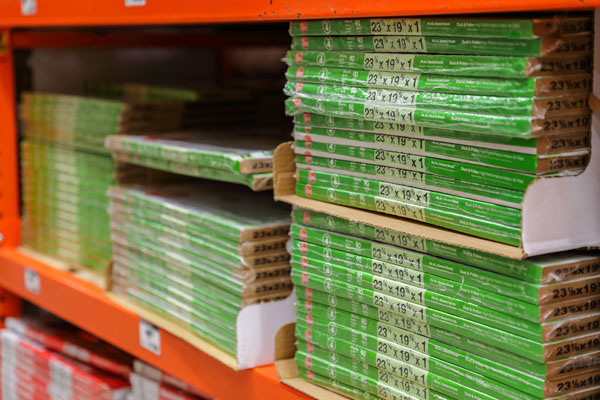What Is A MERV Rating?

Pollutants can be found in all homes. Unwanted air particles might be too small for our eyes to see, but we can definitely feel the negative impact they bring. If you are concerned about your home’s indoor air quality, make sure to perform regular HVAC air filter replacements. Some homes can follow the manufacturer’s recommended schedule, but it is best that you check them once a month. After all, some homes need to replace their HVAC air filter more frequently than the manufacturer’s recommendations. Ensure that you get filters that are compatible with your system and household needs. One aspect to consider when buying HVAC filters is the MERV rating. Read on to know more about the MERV rating, a crucial factor when buying HVAC filters.
What Is A MERV Rating?
It can be confusing to shop for air filters if you haven’t done it before. Almost all products will claim to be the best. Doing research will help you quickly determine which ones are off the mark. Attempting to understand the specifications will help you understand what these numbers mean. For instance, you might see the term ‘MERV,’ which is the acronym of Minimum Efficiency Reporting Value. It is a crucial indicator of an air filter’s ability to trap pollutants and other undesirable particles. Filters with a higher MERV rating means they have better filtration capacities.
How MERV Ratings Work

The MERV rating ranges from 1 to 20. Generally, people want higher ratings, but some applications require a middle-ranged MERV rating. For instance, hospitals, clean rooms, and other demanding environments frequently utilize air filters with 16 to 20 MERV ratings. On the other hand, most homes are usually fitted with filters with 5 to 13 MERV ratings. Filters below MERV 5 are not enough to maintain good indoor air quality. Whereas filters rated above MERV 13 can compromise the operations of the home’s HVAC system.
How Is MERV Rating Determined?
Filters go through rigorous tests to find out their MERV rating. This process presents multiple particles into three various size ranges:
- E1 is 0.3 to 1.0 microns
- E2 is 1.0 to 3.0 microns
- E3 is 3.0 to 10 microns
The human eye cannot see these as we can’t identify anything smaller than 40 microns. To have an idea, human hair is around 50 microns in diameter. The good news is that sensitive laboratory equipment can find all of them. These tiny particles are sprayed through the filters and counted after. The worst test score is used as the basis for the MERV as this process measures the product’s “minimum efficiency.” The filter must capture 95% or more particles to be rated as a MERV 16.
MERV & Your Indoor Air Quality

The indoor air quality significantly affects the comfort and health of your family. Consider switching to a filter with a higher MERV rating if family members experience frequent allergic reactions or asthma. This will remove more air pollutants, resulting in less common allergy symptoms or respiratory problems. The home’s occupants will complain less about headaches, rashes, eye irritation, runny nose, persistent sneezing, and fatigue. Upgrading your filter also protects your home from damage caused by dust and bacteria. Your family will also have fewer bouts of illness, and you can avoid contagions. A high-MERV filter is also beneficial if you have a family member with a weak immune system.
Your Energy Use & MERV Ratings

Air filters need smaller openings so they can trap more airborne particles. The openings shrink in size over time, and even air has difficulty passing through. The HVAC system will have to use more energy to operate as it should. It is why it is not recommended to have a MERV 20 filter in residential properties not built to handle this filtration level. It will only result in higher energy bills and an HVAC system that might break down prematurely unless you make adjustments. Residential air filters are typically ranged between MERV 8 and 13, which are enough to have decent air quality without pushing your energy costs up. Consult an expert HVAC contractor if you are unsure which kind of HVAC filter works best for your home.
How Your HVAC Air Filter Impacts The Condition of Your HVAC System
All forced-air heating and cooling systems come with a recommended air filter MERV rating. It is advisable that homeowners remain within the recommended values to avoid unwanted complications. Low-rated filters might be cheaper, but they can lead to expensive system problems down the line. These filters are not enough to catch pollutants, causing dust and bacteria to accumulate in the ductwork. System efficiency will also drop while maintenance costs will increase. On the other hand, when you go above the recommended rating, there will be faster wear and tear, decreased and shorter system lifespan.
Should I Buy Filters With High MERV Ratings?

People often go for higher ratings when it’s about hotel designations and product reviews, among others. This generally translates to better experiences, but it isn’t always true. Higher doesn’t always mean better when it’s about MERV ratings. MERV filters with high ratings might be better at catching bacteria, pollen, and pet hair. However, they prevent air from moving at ideal speeds throughout the system. Poor airflow can increase energy consumption and bills and reduce indoor comfort, affecting indoor air quality. It is crucial to have a compatible air filter, so make sure to match them with your system.
What MERV Rating Should My Filter Have?
Every heating and cooling system is unique, making it a challenge to give exact recommendations. It is best to refer to the owner’s manual about this matter. Most homes should be fine using a filter scored between MERV 8 and 13. These filters can remove most of the unwanted particles without burdening the system. You can get better results over time with all system components working well together. If you have a smaller family with no pets, MERV 8 should be enough. On the other hand, a home with more people and a few pets needs MERV 11. If someone in your family has a weak immune system, a MERV 13 filter might be necessary to ensure their well-being and health.
Conclusion
MERV rating is a crucial factor when selecting air filters. It showcases the worst-case performance when confronted with microscopic impurities. Low ratings are unwanted as they result in insufficient air cleaning. High ratings aren’t necessarily better since they can have adverse effects on incompatible systems. It is recommended for most homes to use mid-range filters between MERV 8 and 13. However, the best choice will depend on each home’s unique situation.
Call Point Bay Fuel For All Of Your HVAC Requirements

Point Bay Fuel provides you with high-quality HVAC services in Ocean and Monmouth County, New Jersey. We have the best professionally certified technicians for all your heating and cooling service needs, including air conditioner repairs, ductless heat pump installations, boiler maintenance, furnace replacements, and more. All our friendly techs have years of experience and extensive knowledge to service your HVAC system correctly.
Our company offers highly competitive HVAC service prices in the area. Our tune-up services can enhance your comfort and increase energy efficiency while reducing your energy costs. We can recommend the best solution for your HVAC repair or replacement needs without going over your budget. All our work comes with a guarantee because your satisfaction is our priority. Give Point Bay Fuel a call today to book a service appointment. We offer in-home estimates.
Contact us now by calling (732) 349-5059 to speak to one of our home comfort specialists!
